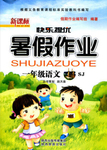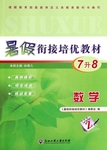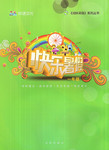
“Tear’em apart!” “Kill the fool!” “Murder the referee (裁判)!”
These are common remarks one may hear at various sporting events. At the time they are made, they may seem innocent (清白) enough. But let’s not kid ourselves. They have been known to influence behavior in such a way as to lead to real bloodshed. Volumes have been written about the way words affect us. It has been shown that words having certain connotations (含義) may cause us to react in ways quite foreign to our usual behavior. I see the term “opponent” as one of those words. Perhaps the time has come to delete it from sports terms.
The dictionary meaning of the term “opponent” is “enemy”; “one who opposes your interests.” Thus, when a player meets an opponent, he or she may tend to treat that opponent as an enemy. At such times, winning may dominate (占據) one’s mind, and every action, no matter how aggressive, may be considered justifiable. I recall an incident in a handball game when a referee refused a player’s request for a time out for a glove change because he did not consider them wet enough. The player proceeded to rub his gloves across his wet T-shirt and then exclaimed, “Are they wet enough now?”
In the heat of battle, players have been observed to throw themselves across the court without considering the consequences. I have also witnessed a player reacting to his opponent’s blocking by deliberately hitting him with the ball as hard as he could during the course of play. Off the court, they are good friends. Does that make any sense? It certainly reflects a court attitude which departs from normal behavior.
Therefore, I believe it is time we elevated (提升) the game to the level where it belongs, thereby setting an example to the rest of the sporting world. Replacing the term ‘opponent’ with ‘associate’ could be an ideal way to start.
The dictionary meaning of the term “associate” is “colleague”; “friend’; ‘companion.’ You may soon see and possibly feel the difference in your reaction to the term “associate” rather than “opponent.”
1.Which of the following statements best expresses the author’ view?
A.Aggressive behavior in sports can have serious consequences.
B.The words people use can influence their behavior.
C.Unpleasant words in sport are often used by foreign athletes.
D.Unfair judgments by referees will lead to violence on the sports field.
2.Sharp words are spoken during games because the players ___________.
A.are too eager to show off themselves
B.are usually short-tempered and easily offended
C.cannot afford to be polite in fierce competitions
D.treat their rivals as enemies
3.According to the passage, players, in a game, may __________.
A.deliberately throw the ball at anyone blocking their way
B.keep on screaming and shouting through the game
C.leave the court as an act of protest
D.kick the ball across the court with force
4.The author hopes to have the current situation in sports improved by ___________.
A.calling on players to use clean language on the court
B.raising the referees responsibility
C.changing the attitude of players on the sports field
D.promoting the relationship between players and referees
 新課標快樂提優暑假作業陜西旅游出版社系列答案
新課標快樂提優暑假作業陜西旅游出版社系列答案 暑假銜接培優教材浙江工商大學出版社系列答案
暑假銜接培優教材浙江工商大學出版社系列答案 欣語文化快樂暑假沈陽出版社系列答案
欣語文化快樂暑假沈陽出版社系列答案科目:高中英語 來源:重慶市西南大學附屬中學2012屆高三第二次月考英語試題 題型:050
| |||||||||||||||||||||||||||||||||||||||||||||||||||||||||||
查看答案和解析>>
科目:高中英語 來源:甘肅省嘉峪關市第一中學2010屆高三一模考試英語試題 題型:閱讀理解
"Tear’em apart!" "Kill the fool!" "Murder the referee(裁判)!"
They are common remarks one may hear at various sporting events. At the time they are made, they may seem innocent(無害的)enough. But let's not kid ourselves. They have been known to influence behavior in such a way as to lead to real bloodshed(流血).Books have been written about the way words affect us. It has shown that words having certain meanings may cause us to react in ways quite foreign to what we consider to be our usual humanistic behavior. I see the term "opponent" as one of those words. Perhaps the time has come to delete it from sports terms.
The dictionary meaning of the term "opponent" is "enemy":“ one who opposes your interests." Thus, when a player meets an opponent, he or she may tend to treat that opponent as an enemy. At such times, winning may control one's mind, and every action, no matter how bad, may be considered correct . I recall an incident in a handball game when a referee refused a player's request for a time out for a glove change because he didn't consider them wet enough. The player rubbed his gloves across his wet  T-shirt and then shouted, "Are they wet enough now?"
T-shirt and then shouted, "Are they wet enough now?"
In the heat of battle, players have been observed to throw themselves across the court without considering the consequences that such a move might have on anyone in their way. I have also witnessed a player reacting to his opponent's intentional and illegal blocking by hitting him with the ball as hard as he could during the course of play. Off the court, they are good friends. Does that make any sense? It certainly gives proof of a court attitude which is different from normal behavior.
Therefore, I believe it is time we promoted the game to the level where it is by setting an example. Replacing the term “opponent” with “ associate” could be an ideal way to start.
The dictionary meaning of the term “associate” is “friend”;“companion.” Think it over!You may soon see and possibly feel the difference in your reaction to the term "associate' rather than "opponent."
49. Which of the following statements best expresses the author's view?
A. Bad behavior in sports will always have serious consequences.
B. The words people use can influence their behavior.
C. Unpleasant words in sports are often used by foreign athletes.
D. Unfair judgments by referees will lead to violence o n the sports field.
n the sports field.
50. Rough words are spoken during games because the players________.
A. are too eager to win B. are usually bad-tempered
C. can't afford to be polite in competitions D. treat their friends as competitors
51. What did the handball player do when he was not allowed a time out to change his gloves?
A. He refused to continue the game.
B. He angrily hit the referee with a ball.
C. He claimed that the referee was unfair.
D. He wet his gloves by rubbing them across his T-shirt.
52. The author hopes to have the current situation in sports improved by_______.
A. changing the attitude of players on the sports field
B. raising the referee's sense of responsibility
C. calling on players to use clean language on the court
D. regulating the relationship between players and referees
查看答案和解析>>
科目:高中英語 來源: 題型:閱讀理解
(浙江省金華一中2008年5月高考模擬C篇)
"Tear’em apart!" "Kill the fool!" "Murder the referee(裁判)!"
They are common remarks one may hear at various sporting events. At the time they are made, they may seem innocent(無害的)enough. But let's not kid ourselves. They have been known to influence behavior in such a way as to lead to real bloodshed(流血).Books have been written about the way words affect us. It has shown that words having certain meanings may cause us to react in ways quite foreign to what we consider to be our usual humanistic behavior. I see the term "opponent" as one of those words. Perhaps the time has come to delete it from sports terms.
The dictionary meaning of the term "opponent" is "enemy":“ one who opposes your interests." Thus, when a player meets an opponent, he or she may tend to treat that opponent as an enemy. At such times, winning may control one's mind, and every action, no matter how bad, may be considered correct . I recall an incident in a handball game when a referee refused a player's request for a time out for a glove change because he didn't consider them wet enough. The player rubbed his gloves across his wet T-shirt and then shouted, "Are they wet enough now?"
In the heat of battle, players have been observed to throw themselves across the court without considering the consequences that such a move might have on anyone in their way. I have also witnessed a player reacting to his opponent's intentional and illegal blocking by hitting him with the ball as hard as he could during the course of play. Off the court, they are good friends. Does that make any sense? It certainly gives proof of a court attitude which is different from normal behavior.
Therefore, I believe it is time we promoted the game to the level where it is by setting an example. Replacing the term “opponent” with “ associate” could be an ideal way to start.
The dictionary meaning of the term “associate” is “friend”;“companion.” Think it over!You may soon see and possibly feel the difference in your reaction to the term "associate' rather than "opponent."
49. Which of the following statements best expresses the author's view?
A. Bad behavior in sports will always have serious consequences.
B. The words people use can influence their behavior.
C. Unpleasant words in sports are often used by foreign athletes.
D. Unfair judgments by referees will lead to violence on the sports field.
50. Rough words are spoken during games because the players________.
A. are too eager to win B. are usually bad-tempered
C. can't afford to be polite in competitions D. treat their friends as competitors
51. What did the handball player do when he was not allowed a time out to change his gloves?
A. He refused to continue the game.
B. He angrily hit the referee with a ball.
C. He claimed that the referee was unfair.
D. He wet his gloves by rubbing them across his T-shirt.
52. The author hopes to have the current situation in sports improved by_______.
A. changing the attitude of players on the sports field
B. raising the referee's sense of responsibility
C. calling on players to use clean language on the court
D. regulating the relationship between players and referees
查看答案和解析>>
科目:高中英語 來源: 題型:閱讀理解
"Tear’em apart!" "Kill the fool!" "Murder the referee(裁判)!"
They are common remarks one may hear at various sporting events. At the time they are made, they may seem innocent(無害的)enough. But let's not kid ourselves. They have been known to influence behavior in such a way as to lead to real bloodshed(流血).Books have been written about the way words affect us. It has shown that words having certain meanings may cause us to react in ways quite foreign to what we consider to be our usual humanistic behavior. I see the term "opponent" as one of those words. Perhaps the time has come to delete it from sports terms.
The dictionary meaning of the term "opponent" is "enemy":“ one who opposes your interests." Thus, when a player meets an opponent, he or she may tend to treat that opponent as an enemy. At such times, winning may control one's mind, and every action, no matter how bad, may be considered correct . I recall an incident in a handball game when a referee refused a player's request for a time out for a glove change because he didn't consider them wet enough. The player rubbed his gloves across his wet T-shirt and then shouted, "Are they wet enough now?"
In the heat of battle, players have been observed to throw themselves across the court without considering the consequences that such a move might have on anyone in their way. I have also witnessed a player reacting to his opponent's intentional and illegal blocking by hitting him with the ball as hard as he could during the course of play. Off the court, they are good friends. Does that make any sense? It certainly gives proof of a court attitude which is different from normal behavior.
Therefore, I believe it is time we promoted the game to the level where it is by setting an example. Replacing the term “opponent” with “ associate” could be an ideal way to start.
The dictionary meaning of the term “associate” is “friend”;“companion.” Think it over!You may soon see and possibly feel the difference in your reaction to the term "associate' rather than "opponent."
1.Which of the following statements best expresses the author's view?
A.Bad behavior in sports will always have serious consequences.
B.The words people use can influence their behavior.
C.Unpleasant words in sports are often used by foreign athletes.
D.Unfair judgments by referees will lead to violence on the sports field.
2.Rough words are spoken during games because the players________.
A.are too eager to win B.are usually bad-tempered
C.can't afford to be polite in competitions D. their friends as competitors
3.What did the handball player do when he was not allowed a time out to change his gloves?
A.He refused to continue the game.
B.He angrily hit the referee with a ball.
C.He claimed that the referee was unfair.
D.He wet his gloves by rubbing them across his T-shirt
4.The author hopes to have the current situation in sports improved by_______.
A.changing the attitude of players on the sports field
B.raising the referee's sense of responsibility
C. on players to use clean language on the court
D. the relationship between players and referees
查看答案和解析>>
湖北省互聯網違法和不良信息舉報平臺 | 網上有害信息舉報專區 | 電信詐騙舉報專區 | 涉歷史虛無主義有害信息舉報專區 | 涉企侵權舉報專區
違法和不良信息舉報電話:027-86699610 舉報郵箱:58377363@163.com